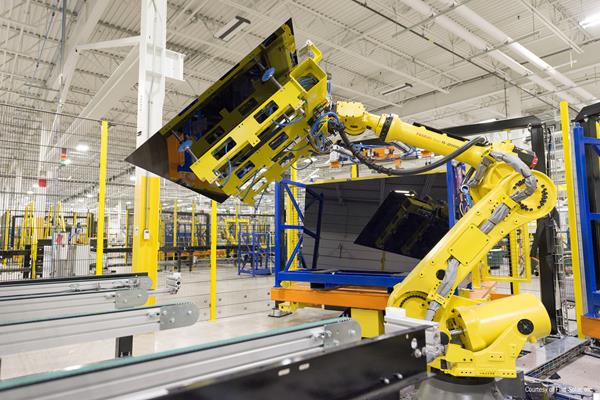- $684 million facility is expected to commence operations in 2023
- Fully-vertically integrated facility will support India’s goal of self-reliance in clean energy technologies
PVTIME – First Solar, Inc. (Nasdaq: FSLR) today announced that it intends to invest $684 million in a new, fully vertically integrated photovoltaic (PV) thin film solar module manufacturing facility in India. Contingent upon permitting, and pending approval of Indian government incentives that are satisfactory to First Solar, the advanced facility is expected to be built in the state of Tamil Nadu and commence operations in the second half of 2023.

The planned facility is projected to have a nameplate capacity of 3.3 gigawatts (GW)DC. With First Solar’s expansion in the United States and India and optimization of its existing fleet, the company anticipates that its nameplate manufacturing capacity will double to 16 GWDC in 2024. Unique among the world’s ten largest solar manufacturers for being the only US-headquartered company, for not using a crystalline silicon (c-Si) semiconductor, and for not manufacturing in China, First Solar produces its thin film PV modules using a fully integrated, continuous process under one roof and does not rely on Chinese c-Si supply chains. The company’s eco-efficient module technology, which uses its proprietary Cadmium Telluride (CadTel) semiconductor, has the lowest carbon and water footprints of any PV module available today.
“India is an attractive market for First Solar, and not simply because our module technology is advantaged in its hot, humid climate. It is an inherently sustainable market, underpinned by a growing economy and appetite for energy, with a well-defined goal that will need over 25 GW of solar to be deployed every year for the next nine years,” said Mark Widmar, chief executive officer, First Solar. “Crucially, it has combined its clean energy targets with effective trade and industrial policy designed to enable self-sufficient domestic manufacturing and true energy security. We also have many longstanding customers in the country that will be pleased to have access to an advanced PV module, which is made in India, for India.”
The International Energy Agency (IEA) has projected that India will overtake the European Union (EU) to become the world’s third largest consumer of electricity by 2030, as the country’s population and Gross Domestic Product (GDP) continue to grow. As part of its climate targets, India has committed to ensuring that renewables will make up 40 percent of its energy portfolio by 2030, and the country is forecast to account for almost 20 percent of the world’s installed solar capacity by 2040.
Widmar added, “India stands apart in the decisiveness of its response to China’s strategy of state-subsidized global dominance of the crystalline silicon solar supply chain. The country’s comprehensive approach provides precisely the kind of level playing field needed for non-Chinese solar manufacturers to compete on their own merits, and should be a template for other likeminded nations. We’re very pleased to be able to support the sustainable energy ambitions of a major US ally in the Indo-Pacific region with American-designed solar technology.”
The facility will be designed using the advanced manufacturing template established for First Solar’s recently-announced factory in Ohio. Combining highly skilled workers with Industry 4.0 architecture, machine-to-machine communication, artificial intelligence, and Internet of Things connectivity, it will feature high degrees of automation, precision, and continuous improvement.
Designed and developed at its research and development (R&D) centers in the United States, First Solar’s advanced thin film PV modules set industry benchmarks for quality, durability, reliability, design, and environmental performance. Each module features a layer of CadTel semiconductor that is only three percent the thickness of a human hair and the company continues to optimize the amount of semiconductor material used by enhancing its vapor deposition process. First Solar also operates an advanced recycling program that recovers more than 90 percent of CadTel for use in new modules.










